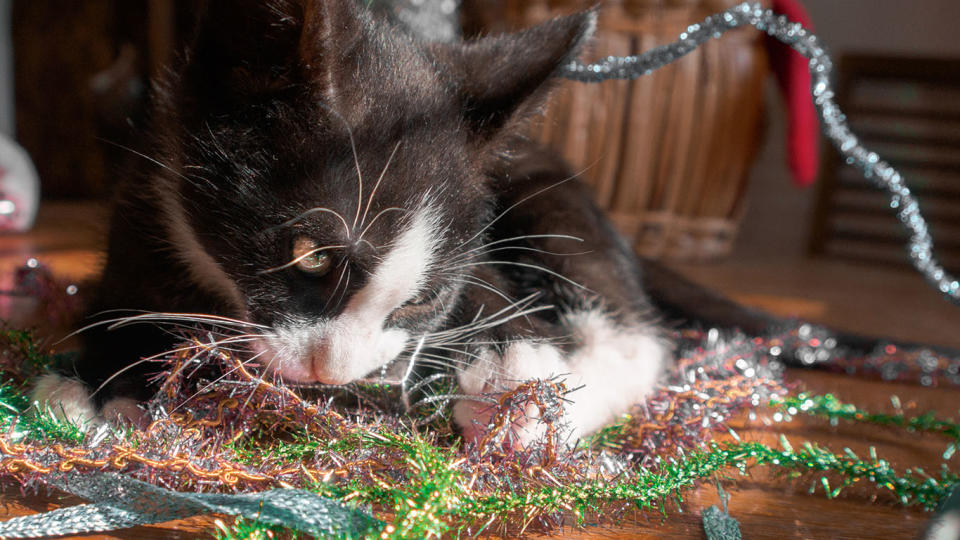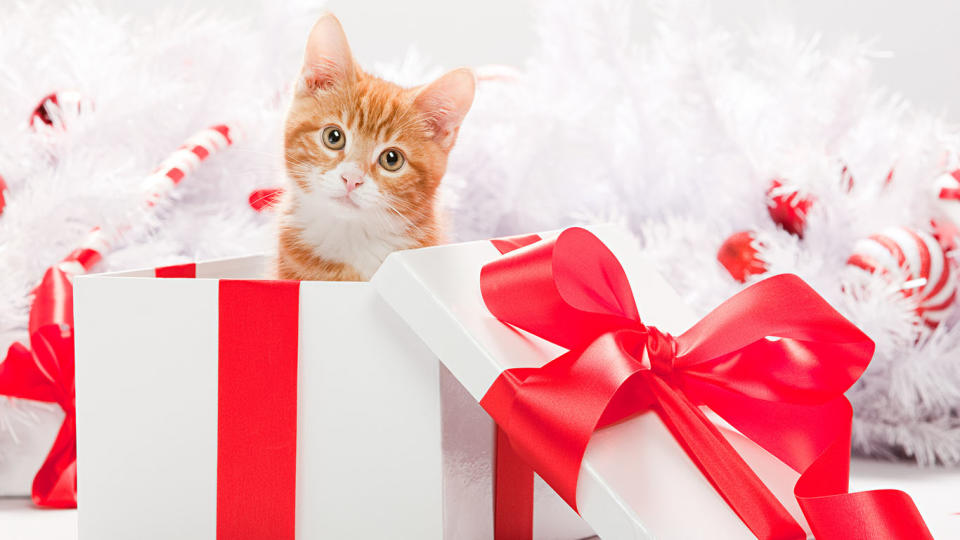Tips to help your pets cope with Christmas stress
Pet owners have been urged to plan for the care and safety of their animals over the Christmas and New Year festive season.
Queensland Minister for Agricultural Industry Development Mark Furner said people needed to remember that pets need to be cared for 365 days a year.
“Changes in routines can be distressing for some pets, with extra visitors and activities confusing, or even frightening,” Mr Furner said.
“Feeding routines can be thrown out because of Christmas gatherings, and families going on holidays can mean significant disruption or even distress for them.”

The RSPCA has some handy tips on how to get your pet through the holiday period without distress.
Keep decorations out of reach
Decorations and presents can pose a risk if consumed. The RSPCA suggests you keep these items away from your pets:
Chocolates or candy cane
Round, ball-shaped decorations that could break in your pet’s mouth
Sparkly items such as flickering tree lights, ribbons, wrapping paper and shiny ornaments
Tinsel, which if swallowed can obstruct the intestines and cause a surgical emergency.

During Christmas gatherings
If your dog may be overwhelmed with lots of new people, give them time away from the action and offer a yummy chew or filled enrichment toy;
Arrange a safe or quiet area where your dog can wind down;
Assign an adult (not involved in supervising children) to be in charge of your dog if you can’t be; and
Do not allow children to hug or kiss your dog.
Don’t feed your dog table scraps
The RSPCA advises you not to feed your dog table scraps, much as you might think this is a way to show your dog love.
Macadamia nuts, onion, garlic, avocado, fatty ham trimmings, grapes, cooked bones and chocolate can all be potentially toxic or even fatal to dogs.

Make sure that any visiting guests have luggage zipped up around animals in case they have medication or other items that may be dangerous to your pet’s health.
Signs that your dog is stressed
RSPCA spokesman Michael Beatty said if your dog is licking its lips, showing the whites of its eyes or turning its head away at a child’s attempt to pat it, then you should immediately intervene.
“Dogs can show their distress at festive gatherings by trying to walk away or hide under furniture, ‘freezing’ or becoming still with their mouths closed or growling,” Mr Beatty said.
Pets are for life – not just Christmas
Mr Furner warned people to think very carefully before giving someone a pet as a Christmas present.
“Pets can be a wonderful addition to a home, but they should never be given as a surprise,” he said.
“Pets are a big commitment. Pets are for life, not just Christmas.”

If you genuinely do want a pet for Christmas, there are some things to take into consideration.
“Don’t buy un-desexed pets from pet shops, markets, newspapers or online, and make certain the whole family is involved in the choosing of a pet,” Mr Beatty said.
“All animals need permanent, happy homes where their owners have made a decision to commit to that animal for the term of its natural life.”
For tips on taking your pets on holidays or how to calm them during fireworks, go to the RSPCA website in your state for more information.


